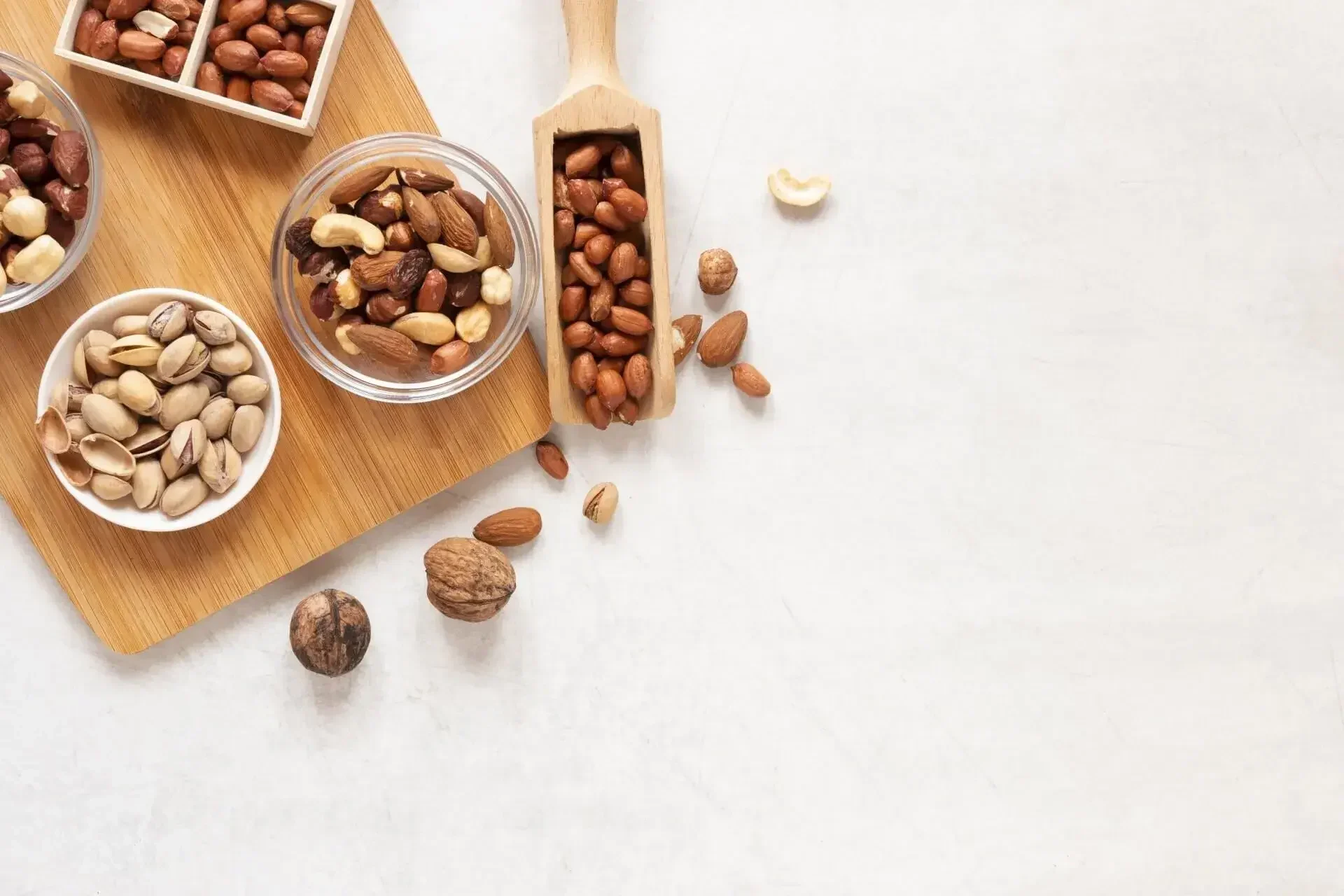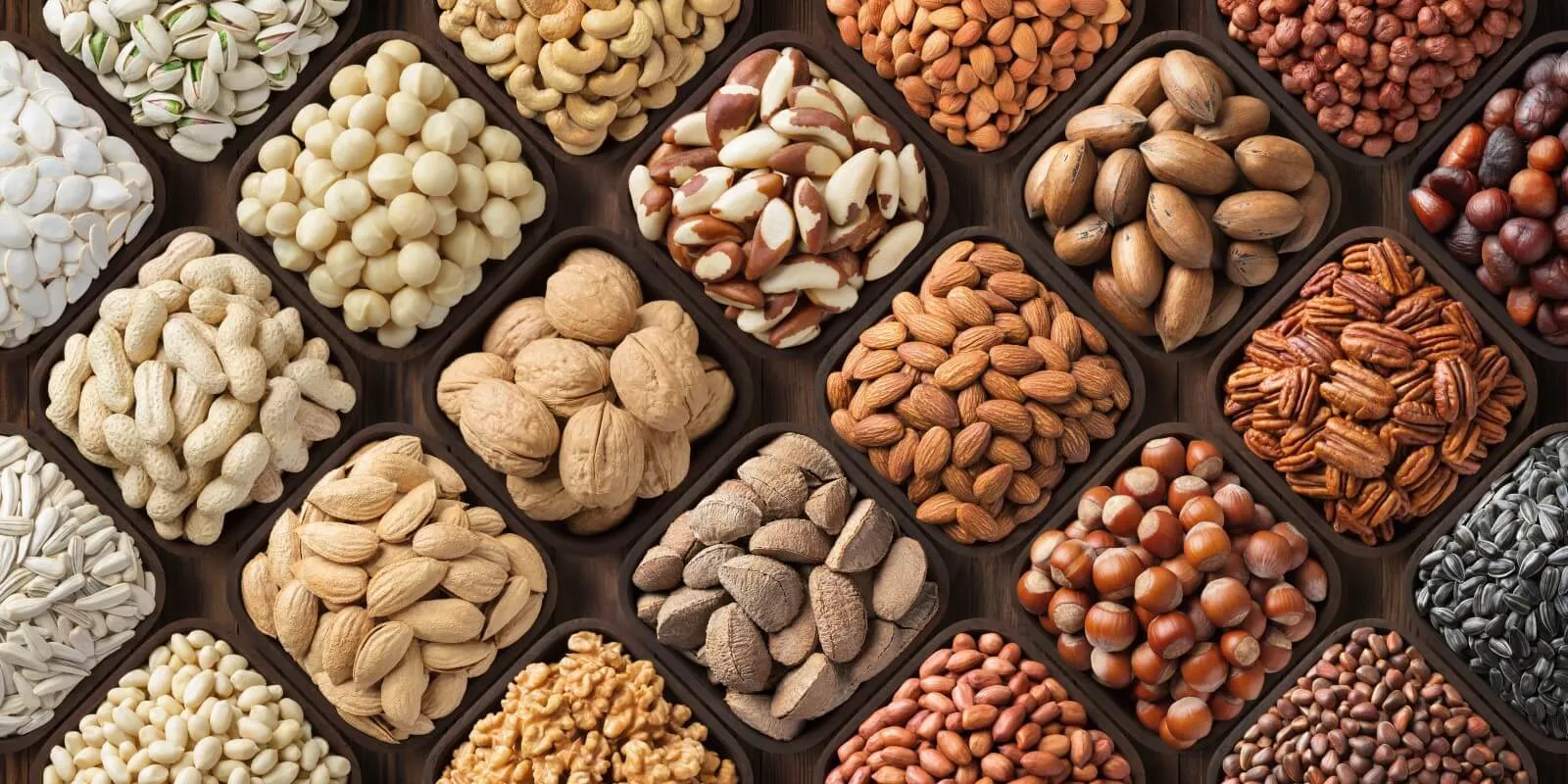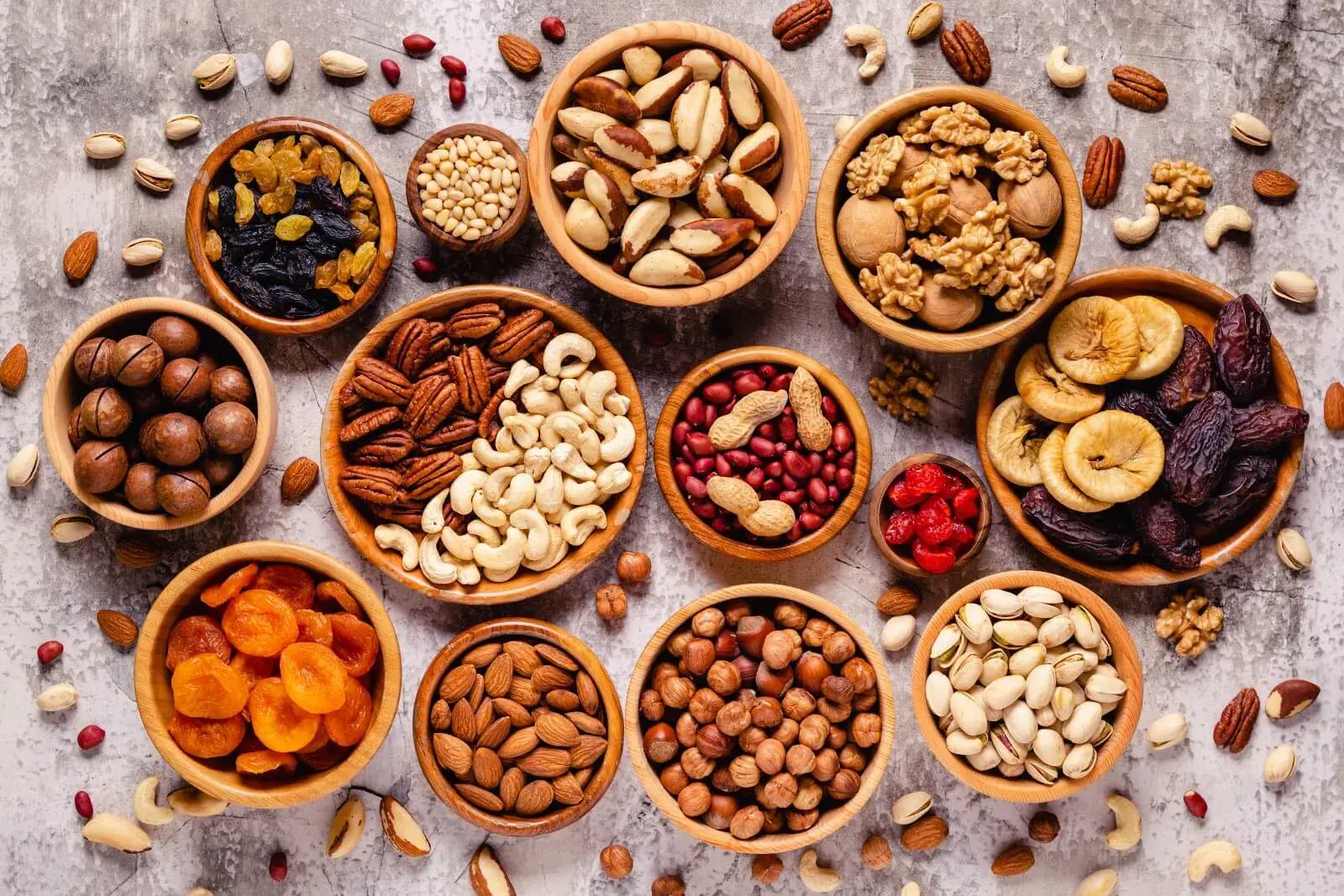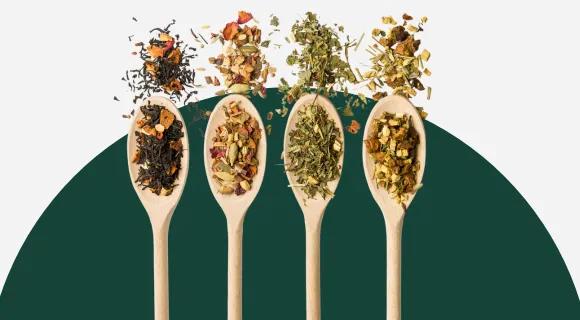Welcome to the world of dry fruits, where health meets flavor! In this comprehensive guide, we’ll explore the myriad benefits of including dry fruits in your diet, delve into the nutritional richness of popular types, discover exciting recipes, and learn how to make the most informed choices when buying and storing these nutrient-packed treasures.
The Health Benefits of Dry Fruits
Dry fruits are not just delicious; they are nutritional powerhouses offering a wide array of health benefits:
Nutrient-Packed Goodness
Dry fruits are dense with essential nutrients, including vitamins, minerals, and antioxidants. These concentrated bites provide a quick and convenient way to boost your overall nutrient intake.
Heart Health Champions
Almonds, walnuts, and pistachios are like superheroes for your heart. They do a fantastic job of making sure your heart stays healthy by helping to reduce cholesterol. Almonds have special healthy fats and plant sterols that can lower the “bad” cholesterol. Walnuts, with their omega-3 fatty acids and antioxidants, are like protective shields, fighting inflammation and making your blood vessels work better. Pistachios, loaded with good fats and plant compounds, not only lower the “bad” cholesterol but also raise the “good” one. Eating these nuts regularly has been linked to having better overall cholesterol and triglyceride levels and keeping your heart in good shape.
Energy Boosters
Dry fruits are excellent energy boosters, so it’s crucial to consume them in moderation. They are calorie-dense, and excessive intake may contribute to an excess of calories in your diet. Additionally, pairing them with a source of protein, such as yogurt or cheese, can enhance their energy-sustaining effects. Always consider your individual dietary needs and consult with a healthcare professional or nutritionist if you have specific health concerns.
Energy Boost
Dry fruits are a natural source of sugar, providing a quick and sustained energy boost. They can be a healthier alternative to processed snacks and help curb cravings
Weight Management
Dry fruits are nutrient-dense and can help you feel full for longer due to their fiber and protein content. Including them in moderation as part of a balanced diet can support weight management
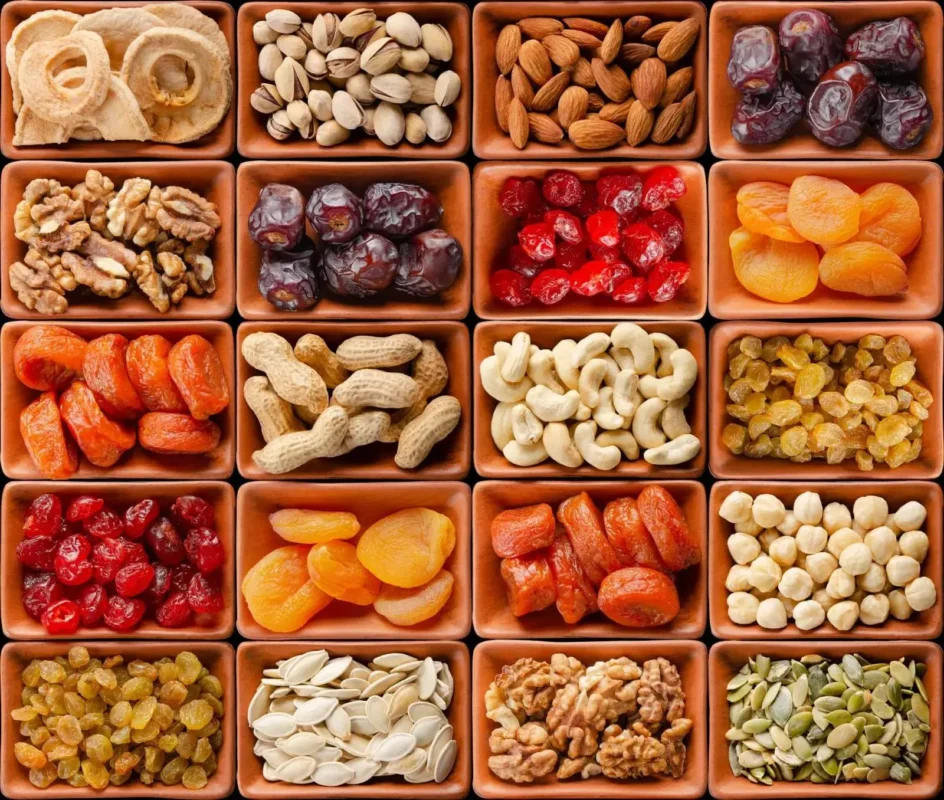
Popular Types of Dry Fruits
Let’s dive into the unique qualities and benefits of some of the most popular dry fruits:
–Almonds
Plant Sterols: Monounsaturated Fats: Almonds are rich in monounsaturated fats, which are heart-healthy fats associated with a lower risk of cardiovascular diseases.Almonds contain plant sterols, compounds with a structure similar to cholesterol, which can help block the absorption of cholesterol in the digestive system.
Lowering LDL Cholesterol: Regular consumption of almonds has been linked to a reduction in LDL (low-density lipoprotein) cholesterol levels, often referred to as “bad” cholesterol.
-Walnuts
Omega-3 Fatty Acids: Walnuts are a unique source of plant-based omega-3 fatty acids, specifically alpha-linolenic acid (ALA). Omega-3s contribute to heart health by reducing inflammation and improving blood vessel function.
Antioxidants: Walnuts contain antioxidants, such as polyphenols, that help combat oxidative stress in the arteries, promoting a healthier cardiovascular system.
Improving Lipid Profiles: Including walnuts in the diet has been associated with improved lipid profiles, including lower levels of total cholesterol and LDL cholesterol.
-Pistachios
Healthy Fats: Pistachios are rich in monounsaturated and polyunsaturated fats, which can help lower LDL cholesterol and raise HDL (high-density lipoprotein) cholesterol, often referred to as “good” cholesterol.
Phytosterols: Pistachios contain phytosterols, plant compounds that compete with cholesterol absorption in the gut, leading to lower cholesterol levels.
Reducing Inflammation: The antioxidants in pistachios contribute to reducing inflammation in the arteries, supporting heart health.
How They Contribute:
Lowering LDL Cholesterol
Almonds, walnuts, and pistachios are known for their ability to lower LDL cholesterol levels, which is crucial for reducing the risk of atherosclerosis (hardening of the arteries) and heart disease.
Improving Lipid Profiles
Regular consumption of these dry fruits has been associated with improved lipid profiles, including a reduction in total cholesterol and triglyceride levels.
Providing Healthy Fats
The monounsaturated and polyunsaturated fats found in these dry fruits contribute to a healthier lipid profile, reducing the risk of cardiovascular diseases.
Boosting Omega-3 Fatty Acids
Walnuts, in particular, provide a plant-based source of omega-3 fatty acids, which have anti-inflammatory effects and contribute to overall heart health.
Promoting Arterial Health
Antioxidants present in these dry fruits help combat oxidative stress, reducing inflammation in the arteries and promoting better blood vessel function
Cooking with Dry Fruits
Dry fruits aren’t just for snacking – they can elevate your culinary creations:
Healthy Recipes
Dry fruits serve as fantastic ingredients to enhance the flavor and nutritional content of your meals. Explore a variety of healthy recipes that go beyond simple snacking. From refreshing smoothies that kickstart your day to energy bars that provide a quick boost and salads bursting with nutrients, these recipes incorporate the wholesome goodness of dry fruits, making your meals both tasty and nutritious.
Festive Delights
It’s a special dessert, a traditional holiday treat, or a celebratory meal, dry fruits take center stage, adding a perfect balance of flavors and nutritional richness to your celebrations. Learn creative ways to incorporate these nutritious gems into your festive feasts and make your occasions even more memorable.
Buying and Storing Tips
Ensuring the quality and freshness of your dry fruits is key:
Choose reputable sources: Purchase dry fruits from trusted suppliers or brands to ensure their quality and safety.
Check for freshness: Look for dry fruits that are plump, firm, and free from mold or signs of spoilage.
Buy in small quantities: Unless you plan to consume them quickly, it’s best to buy dry fruits in smaller quantities to maintain their freshness
Storing Tips
Transfer to airtight containers: Once you’ve purchased dry fruits, transfer them from their original packaging to airtight containers. Glass jars or containers with tight-sealing lids work well to keep out moisture and pests.
Store in a cool, dry place: Dry fruits should be stored in a cool and dry area away from direct sunlight. Excessive heat and humidity can cause them to spoil or lose their quality

